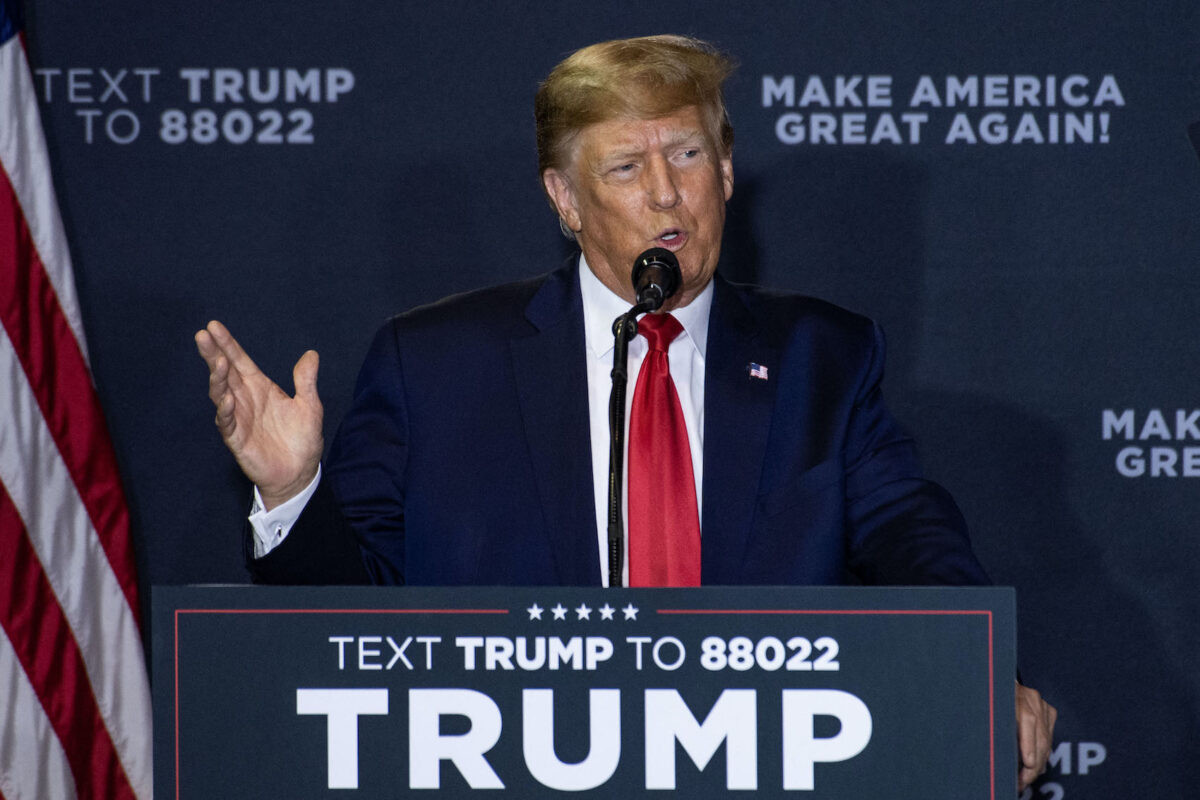

Former President Donald Trump is likely to become the next U.S. president, according to Scottish-American historian Niall Ferguson.
“A second Trump act is not just possible. It’s fast becoming my base case,” Ferguson, a senior fellow at Stanford University’s Hoover Institute, wrote in a May 13 op-ed for The Spectator.
Ferguson explained that there is a “campaign of lawfare against Trump” but the effort “has already started to backfire.”
“It may seem paradoxical that the Democrats are harassing Trump in the courts if they want to run against him. But it makes sense: the prospect of him performing the perp walk attracts media coverage, and media coverage is the free publicity on which Trump has always thrived,” Ferguson wrote.
Ferguson added, “Every column inch or minute of airtime his legal battles earn him is an inch or a minute less for his Republican rivals for the nomination.”
On May 9, a New York jury found Trump civilly liable for battery and defamation in a lawsuit brought by writer E. Jean Carroll. Her allegations, that she was raped by the former Trump in a department store sometime between late 1995 and early 1996, were dismissed.
The jury awarded Carroll $2 million in compensatory damages and $20,000 in punitive damages in the battery claim. She was awarded an additional $3 million in damages in the defamation claim.
Trump, who has denied the allegations, has since appealed the verdict.
In a separate case, Trump was charged on April 4 with 34 accounts of falsifying business records related to non-disclosure payments made during the 2016 presidential campaign. Trump has pleaded not guilty to all charges.
Ferguson also argued that if it were a two-man race between Trump and Florida Gov. Ron DeSantis, there would be “a good deal more uncertainty around the outcome,” given that the governor “still looks to be in contention” in head-to-head polling.
“When voters are polled about this crowded field, Trump is the clear frontrunner, leading DeSantis by an average margin of nearly 30 points, 52.1 percent to 22.9,” Ferguson wrote.
Currently, the Florida governor has not indicated when or if he will announce a 2024 White House bid.
Apart from Trump, former South Carolina Gov. Nikki Haley, former Arkansas Gov. Asa Hutchinson, biotechnology entrepreneur Vivek Ramaswamy, and conservative radio host Larry Elder have announced a 2024 run for the GOP nomination.
According to a recent survey from Florida Atlantic University (FAU), Trump led DeSantis 59 percent to 31 percent, among 1,081 registered voters in Florida polled on April 13 and April 14.
“Trump wins decisively against DeSantis in the Tampa Bay area (69 percent for Trump vs. 22 percent for DeSantis); in southwest Florida (80 percent for Trump vs. 7 percent for DeSantis); and in Palm Beach County (65 percent for Trump vs. 33 percent for DeSantis),” the survey says. “However, in northwest Florida, Trump and DeSantis tie with 43 percent each.”
“Former President Trump continues to be a strong candidate for the Republican nomination and his support appears durable and consistent,” said FAU political science professor Kevin Wagner in a statement accompanying the survey.
Ferguson noted that Trump’s early popularity among GOP presidential hopefuls would play to his advantage, given that the “Republican primary process favours candidates with early leads because most states award delegates on a ‘winner takes all’ or ‘winner takes most’ basis.”
“The lesson of history is clear—the Republican frontrunner usually wins the nomination, and a post-recession incumbent usually loses the presidential election,” Ferguson wrote.
A recession would also help Trump, Ferguson noted, since it would negatively affect President Joe Biden’s re-election bid.
“For the simple reason that no president since Calvin Coolidge a century ago has secured re-election if a recession has occurred in the two years before the nation votes,” Ferguson explained.
“It does not need to be as severe as the Great Depression that destroyed Herbert Hoover’s presidency. A plain vanilla recession will suffice.”

![[GOOD PRESS] ON[GOOD PRESS] ON](https://georgemagazine.com/wp-content/uploads/2024/08/16389056566437433941_2048-300x300.jpeg)


Discount Applied Successfully!
Your savings have been added to the cart.